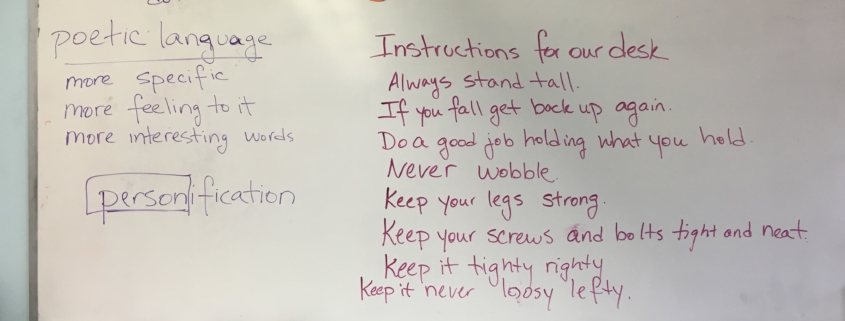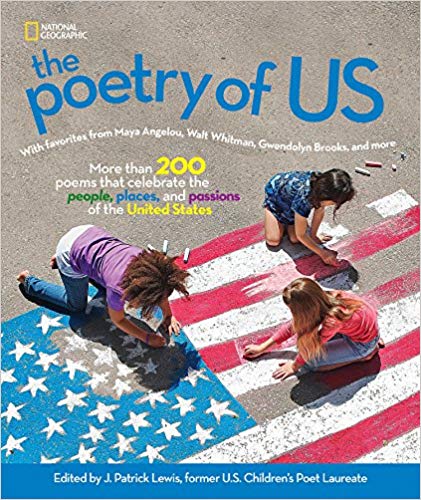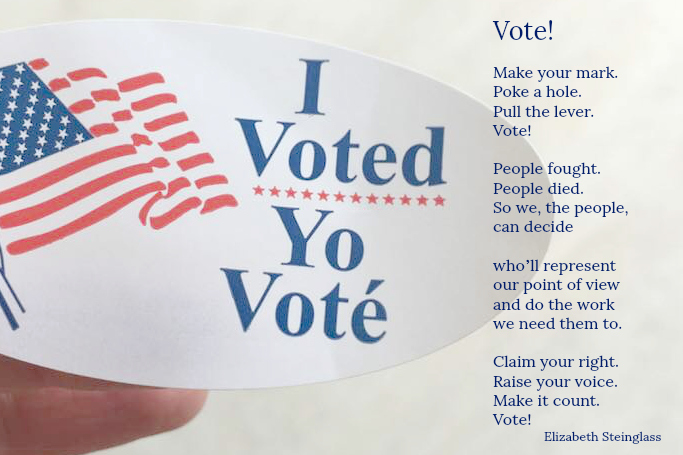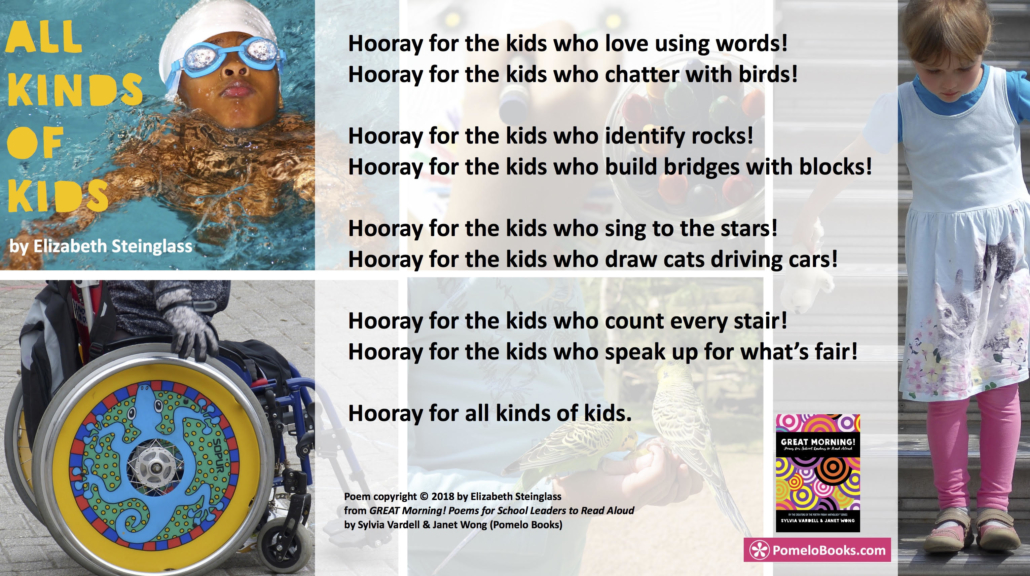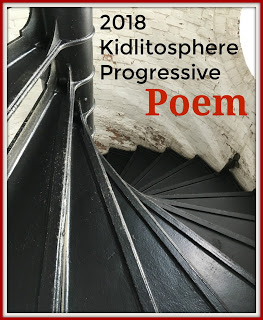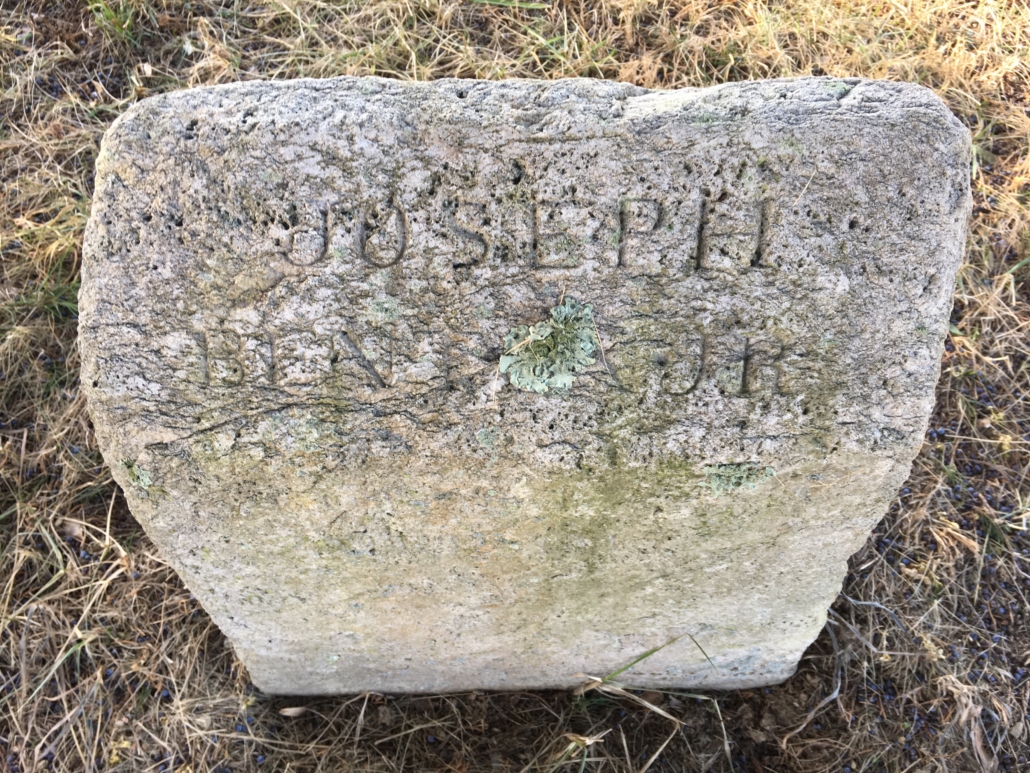Last Friday I visited two elementary language arts classes at a local school in Washington, DC. I knew beforehand that the students had already done some work on haiku and had written winter animal haiku. I also knew that the teacher was hoping we could discuss poetic language and perhaps some other forms of poetry. With this in mind I planned our lesson.
We began with introductions. I said that I had heard they had been learning about haiku and asked them what they remembered learning. I said that I had also heard that they had been writing winter animal haiku and that I had brought my favorite winter animal haiku:
A bitter morning:
sparrows sitting together
without any necks
J. W. Hackett
Before I read it to them, I said that they could follow along while I read (I had it on a handout for them) or they could close their eyes while I read, if they liked. (When I have done this in the past, many students have said they really liked closing their eyes.) I read the poem slowly, twice. We talked about what bitter means, and I asked them what they noticed about the poem. One student asked why the sparrows didn’t have any necks. A few other students quickly hunched their shoulders to demonstrate. When I asked how they felt when I read the poem, some said cold.
Then, with heart-felt apologies to J. W. Hackett, I shared this with them (it was also on the handout):
A winter day:
birds sitting next to each other
hunching their shoulders
I said that I was trying to imagine what J. W. Hackett’s poem might have looked like when he first wrote it. (Again, my deepest apologies. Perhaps J. W. Hackett wrote truly impressive first drafts.) We then compared the two versions line by line and talked about how they were different. A student said that winter days can be warm or snowy or cold. We talked about how birds could mean any bird, but a sparrow is a specific little brown and gray bird. We talked about how the words bitter and sparrow are more interesting words than winter and bird. We talked about how the word “together” is more concise than “next to each other” and more emotional. For many of us “together” felt cozier and snugglier. We also talked about how the phrase “without any necks,” made us wonder what that meant, made us ask ourselves a question in our heads, and then think through the answer. Along the way the students noted that the syllable count in Hackett’s poem follows the 5/7/5 pattern and that mine does not. We clapped out syllables and talked about how some haiku follow the syllable pattern and some do not.
To pull it all together I said that J. W. Hackett’s haiku used more poetic language than my version. I wrote “Poetic Language” on the white board, and we made a list of what makes language more poetic. One student said, “This is like a list of what good poets do.” I quickly put that heading over mine. Underneath we wrote: “more specific, more feelings, and more interesting words.”
We then moved on to discussing another form of poetry, the “How to be…” or instruction poem. We read an instruction poem I had written, discussed it, identified any poetic language we could find, and then wrote a poem together. I chose the topic “Instructions for our Desks” before I arrived so we didn’t have to spend any time thinking about what to write about. My assumption was that everyone would have something to say about a desk and that it would be helpful to have the desks right in front of us. Before we started writing, we brainstormed using guiding questions:
What does our ideal desk look like?
What do we do at our desks?
What do we want our desks to do?
What do we hope our desks won’t do?
After a lively discussion, I wrote “Instructions for our Desks” on the white board and solicited lines from the class. The students seemed to have lots of ideas about what to add. I left them with the idea that what they might do next is look at the language in the poem and see where it might be even more poetic.
Overall, I would say the workshops went well and the kids were engaged. It was interesting to see how different parts of the plan engaged different kids. I think it worked well to compare versions with and without poetic language. I also think it worked well to brainstorm before writing together.
Next time, I will definitely ask one of the other adults in the room to signal me when there’s 10 minutes left. I find it very challenging to be engaged with the students while also keeping track of the time!
I welcome all thoughts about my lesson, sharing poetry in schools, and especially collaborative writing with students.
For more Poetry Friday, visit Tabatha Yeatts at The Opposite of Indifference.
